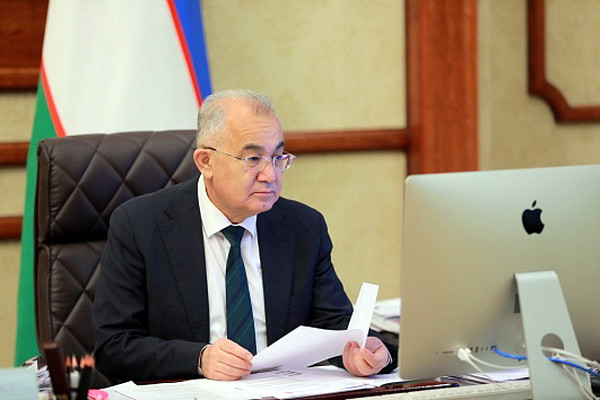
Annual conference on the theme: "Identity and dynamics of modern Asian constitutionalism in the context of globalization" takes place
Tashkent, Uzbekistan (UzDaily.com) -- On 14-15 February 2022, an annual video conference was held on the topic: "Identity and dynamics of modern Asian constitutionalism in the context of globalization." The conference was organized by the Asian Legal Exchange Center and the Nagoya University Graduate School of Law.
The main purpose of this event is the exchange of information and experience in building constitutionalism in Asian countries over the past decades. The conference was attended by representatives of the academic community, universities from more than 15 countries in Asia and Europe.
The transformation processes of the post-colonial, post-cold war, or post-socialist system in Asia have created many challenges, including institutional (re)building, economic change, and massive legal reforms. From the point of view of globalists, Asian constitutionalism and the process of developing constitutions in Asian states are seen as striving for a Western model of democracy and the rule of law. In fact, the specific regional features shaped by colonial and traditional tendencies created special conditions for the creation of diverse constitutional cultures in Asia.
The first day session on 14 February 2022 was devoted to the Eurasian perspective, the second day session was devoted to the broader Asian perspective.
Leading experts from Russia, Great Britain, Germany, Kazakhstan and Uzbekistan spoke on the first day. During the first day, topics such as Russian reforms and amendments to the constitution, the role of international law on the legal systems of the countries of Central Asia, the prospects for constitutionalism in the countries of Central Asia, new trends in the development of constitutionalism on the example of Uzbekistan were discussed.
On the second day of the conference, presentations were made by representatives of such Asian countries as the Republic of Korea, China, Singapore, Indonesia and Thailand. The speakers touched upon such topics as amendments to the constitution of the Republic of Korea, the experience of constitutionalism in Sri Lanka and Myanmar, the peculiarities of constitutionalism in Cambodia, and the rethinking of gender within the framework of the Indonesian constitution.
Akmal Saidov, First Deputy Speaker of the Legislative Chamber of the Oliy Majlis of the Republic of Uzbekistan, Director of the National Center for Human Rights of the Republic of Uzbekistan, acted as a leading expert and speaker at the conference. The participants of this conference were introduced to the role of the constitution in the modern world, as well as the main models of constitutional reforms. The Uzbek academician outlined the features of the constitutional development of the countries of Central Asia, dwelling separately on the experience of Uzbekistan.
The process of adopting the Basic Law of the State was carried out with two stages of nationwide discussion. Thus, the document became truly the fruit of the will of the people. To date, 16 amendments and additions have been made to the Constitution of Uzbekistan. In 2021, during the election campaign of the President of Uzbekistan, representatives of the public put forward a number of proposals for further improving certain institutions and norms of the Constitution, in particular, strengthening guarantees for the inviolability of private property, securing the right to land ownership, as well as issues of environmental protection and protection of the environmental rights of citizens.
During the conference, theoretical and practical issues of constitutional development in the context of globalization and taking into account regional characteristics were considered, directions for the further development of constitutionalism were announced in order to achieve the most efficient functioning of the state.
The participants of the conference highly appreciated the contribution of this conference to the process of exchanging experience in the construction and development of constitutionalism in Asian countries.
The book Dynamics of Contemporary Constitutionalism in Eurasia: Local Legacies and Global Trends (Berlin, 2022) prepared by the Asian Legal Exchange Center was presented at the conference.